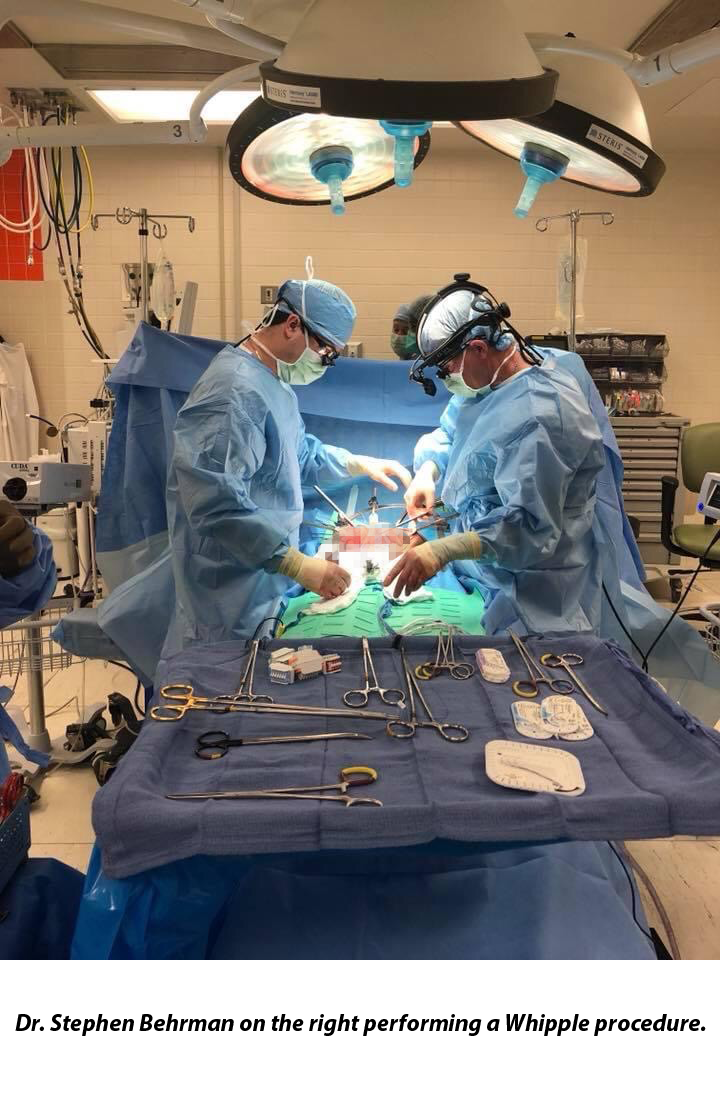
Baptist Grant Update
Dr. Stephen Behrman, General Surgeon and Medical Advisor to the Kosten Foundation

There are 4 cancers that occur in the area of the pancreas, including pancreatic cancer, cancer of the ampulla of Vater, distal bile duct cancer, and duodenal cancer.
Removal of all of these cancers requires the same operation: pancreatoduodenectomy or a Whipple procedure which is a high-risk operation. By far, the most common lesion is pancreatic cancer, with ~60,000 new cases diagnosed annually in the United States.
At the opposite end of the spectrum is duodenal cancer, with an annual incidence of 5,000 cases. All of these cancers remain highly aggressive and have a high risk of recurrence despite any treatment. The majority of research on treatment, appropriately, has focused on pancreatic cancer, with the other 3 cancers receiving much less attention due to their rarity.
Pancreatic cancer can often be difficult to remove due to tumor relationships to surrounding organs and major blood vessels. In contrast, the other 3 cancers in this area are typically easier to remove, are frequently treated by immediate surgery, but unfortunately have a high recurrence rate.
It is now known that patients with pancreatic cancer, along with many other abdominal cancers, benefit from chemotherapy and sometimes radiation therapy before surgery to destroy potential “micrometastatic” disease and cancer tissue within the pancreas. Thus, in 2023, most patients with pancreatic cancer do not proceed to immediate surgery but begin their treatment with chemotherapy.
Because patients with the other 3 peripancreatic cancers are so much less common, it is unknown if they might benefit from a similar treatment strategy consisting of chemotherapy and radiation before surgical resection (neoadjuvant therapy).
Furthermore, while there has been extensive analysis of genetic mutations associated with pancreatic cancer, much less study has been directed at those with other peripancreatic cancers. This is important because our knowledge and development of “targeted” therapies or immunotherapy are rapidly expanding, allowing us to utilize our body’s immune system to attack and destroy cancer.
Our work at Baptist Cancer Center, supported by the Kosten Foundation, has focused on a neoadjuvant treatment platform to attack cancers of the ampulla of Vater, distal bile duct, and the duodenum. Our preliminary results suggest that sequencing treatment in this manner leads to significant tumor destruction and better pathologic outcomes that we hope will lead to better survival. A secondary arm of our work had been to study the genetic aberrations associated with these 3 cancers that might lead toward advances in targeted therapy of these lesions. Indeed, a small subset of our patients has benefited from targeted therapy. This work has been submitted for publication in medical journals and presented at the Southwest Oncology Group – an arm of the National Cancer Institute, in consideration of an ultimate
clinical trial.
These cancers represent a terrible burden in our community, and we will continue to work tirelessly for a cure going forward. The generous funding by the Kosten Foundation allows us to continue this important work.